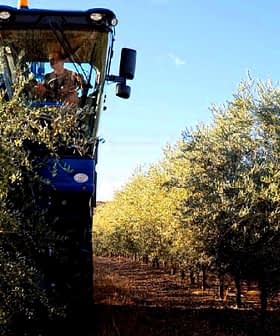Estimates by the International Olive Council (IOC) point to a 27 percent drop in world olive oil production for the current 2014/2015 crop year.
The Council’s November 2014 newsletter released today reports that olive oil producers in Europe are expected to experience a significant 38 percent decrease, with Spain and Italy the worst hit, while Greece will experience a dramatic increase in production, and Portugal will not see a change compared to last year.
Olive oil-producing countries outside the EU have fared better, with Tunisia leading, and Jordan, Egypt, Israel, Albania, and Iran also reporting bigger yields. Production is expected to be stable in Turkey, Algeria, and Libya, while Morocco, Syria, Lebanon, and Argentina will show a decrease compared to the previous crop year.
In response to the significant decrease in the global olive output, prices for extra virgin olive oil have been rising sharply since September. Italy has experienced the biggest price rise, peaking at €5.86/kg at the end of November, a whopping 121 percent increase compared to a year earlier. In Spain, the world’s biggest olive oil producer, the price rose from €2.74/kg at end of September to €2.93/kg at the end of November, representing a 29 percent increase from last year.
See Also:Complete Coverage of the 2014 Harvest
In Greece, the cost of extra virgin olive oil peaked at 2.96/kg, during the second half of November, 23 percent more than last year. Meanwhile, prices in Tunisia have increased to €2.88/kg at the end of November, a 24 percent rise compared to the previous crop year.
As a result of rising olive oil prices and other market pressures, the IOC forecasts world olive oil consumption to slide 7 percent for the 2014/2015 crop year.








